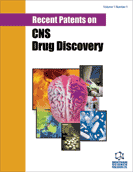Abstract
Nutrition, as a fundamental process for sustaining health, is of paramount
importance, particularly for individuals grappling with critical illnesses. The effective
management of nutrition involves a collaborative effort from a diverse group of
healthcare professionals, including doctors, dietitians, and clinical pharmacists, among
others. Among these professionals, clinical pharmacists play a significant role in
delivering nutrition and enhancing potential health outcomes within the healthcare
team. In the pursuit of comprehensive patient care, clinical pharmacists are actively
engaged in providing essential macro and micronutrients while diligently addressing
any issues arising from nutritional products and medication usage in critically ill
patients. Moreover, optimizing drug regimens for patients requiring parenteral or
enteral nutrition yields substantial benefits for their overall survival. The administration
of medications to individuals in need of Total Parenteral Nutrition (TPN) and Enteral
Nutrition (EN) necessitates keen attention and skill. As leaders in drug administration
processes for patients receiving nutritional support, clinical pharmacists assume a
pivotal role, particularly in the administration of medications through enteral feeding
tubes. This active involvement significantly contributes to the achievement of desired
health outcomes, enhancing patient well-being and recovery. Given the indispensable
contributions of clinical pharmacists, their inclusion within the multidisciplinary
healthcare team is of paramount importance. By drawing upon their specialized
pharmaceutical and clinical knowledge, clinical pharmacists are instrumental in the
successful implementation of enteral and parenteral nutrition applications. Embracing
this collaborative approach not only strengthens the efficacy of nutrition interventions
but also augments the overall quality of patient care.






















